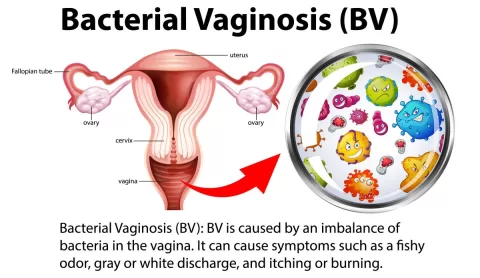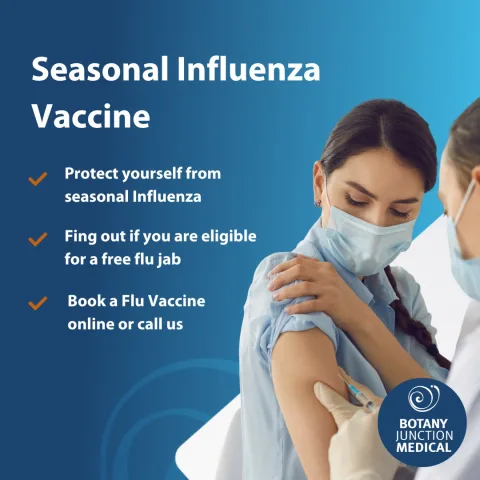The recent Salmonella outbreak in brown eggs has raised significant health concerns across multiple states. According to a Centers for Disease Control and Prevention (CDC) report, 79 people have been infected with Salmonella Enteritidis, leading to 21 hospitalizations. The brown cage-free eggs linked to this alarming outbreak were distributed by August Egg Company in California, creating a ripple effect in states such as Arizona and New Jersey. Health officials have urged consumers to steer clear of any eggs from this distributor, which were associated with restaurants that served these products and reported illnesses. As the investigation unfolds, the FDA is taking crucial steps, including an extensive recall of these potentially contaminated brown eggs, to safeguard public health and mitigate risks associated with Salmonella symptoms.
A concerning health crisis has emerged as a multistate Salmonella outbreak related to brown eggs becomes a focal point for health authorities. This situation primarily involves Salmonella Enteritidis, a strain notorious for causing foodborne illnesses. Recent CDC updates reveal that numerous individuals have fallen ill after consuming these potentially tainted brown cage-free and brown certified organic eggs. The outbreak’s implications extend to various states and have prompted a significant FDA recall to prevent further spread. With symptoms of Salmonella infection variably impacting affected individuals, those who recently dined at establishments using these eggs are particularly urged to stay vigilant.
Understanding the Current Salmonella Outbreak in Brown Eggs
Recent investigations by federal and state health authorities have unearthed a significant outbreak of Salmonella associated with brown eggs distributed in California. As the CDC reported, this outbreak involves Salmonella Enteritidis, with 79 individuals across seven states being affected. The ages of these individuals range from just one year old to 90, showcasing that Salmonella infections can impact any demographic. With an onset period of illness spanning from late February to mid-May, health officials are particularly concerned about clusters of infections linked to restaurants that served these eggs.
The processing and distribution of these brown cage-free and organic eggs have become especially critical as the CDC warns that the number of infections is likely underreported. Many individuals may recover from Salmonella infections without seeking medical attention, leading to challenges in accurately assessing the outbreak’s magnitude. Consumers are urged to remain vigilant, and it is recommended to stay updated with any information from health authorities regarding food safety practices, especially concerning eggs that may be contaminated.
Impact of Salmonella Enteritidis on Public Health
Salmonella Enteritidis is a common strain associated with foodborne outbreaks, particularly in poultry products, including brown eggs. The CDC’s latest updates highlight serious public health concerns, as this strain has been linked to various hospitalizations. With the outbreak reported to have caused 21 hospitalizations, it is evident that Salmonella can lead to severe health complications, especially in vulnerable populations like children, the elderly, and those with weakened immune systems. Awareness of Salmonella symptoms such as diarrhea, fever, and abdominal cramps is crucial for early identification and treatment.
While most Salmonella infections resolve without the need for antibiotics, the CDC has raised alarms over the antibiotic resistance observed in this outbreak strain. As mentioned, this particular Salmonella shows resistance to many commonly prescribed antibiotics, which complicates treatment options. Health officials emphasize that any individuals displaying symptoms after consuming potentially contaminated egg products should seek medical attention promptly to receive appropriate care and prevent further spread of the illness.
The Role of the FDA in the Salmonella Egg Recall
The Food and Drug Administration (FDA) plays a pivotal role in monitoring and ensuring the safety of food products, especially during outbreaks like the current Salmonella situation with brown eggs. Following a traceback investigation linked to August Egg Company, the FDA initiated a recall of 1.7 million cartons of brown cage-free and certified organic eggs. These steps are essential in preventing illness and protecting consumers. Retailers across multiple states have been notified to prevent the sale and distribution of the affected egg products.
The proactive measures taken by the FDA illustrate the importance of regulatory bodies in addressing foodborne illness outbreaks. The agency not only tracks down the source of the contamination but also engages in public health communication to alert consumers about potential risks. Following the investigation, consumers are advised to check their egg purchases for affected brands and to return or discard any recalled products to mitigate health risks.
Prevention Tips for Consumers Handling Brown Eggs
In light of the current Salmonella outbreak, it is imperative for consumers to adhere to safe handling practices when it comes to brown eggs. This includes proper refrigeration, cooking eggs thoroughly, and avoiding the consumption of raw or undercooked eggs. The CDC recommends that eggs should be cooked to an internal temperature of at least 160°F to ensure harmful bacteria are killed, significantly reducing the risk of Salmonella infection.
Additionally, consumers should be vigilant about egg sourcing. Selecting certified organic or farm-fresh eggs should come with a cautious mindset regarding their safety. It is recommended to buy eggs from reputable brands and retailers, keeping an eye out for any ongoing recalls or updates regarding Salmonella contamination. By following proper food safety measures, consumers can contribute to reducing the incidence of foodborne illnesses.
Salmonella Symptoms: Recognizing the Signs of Infection
Awareness of Salmonella symptoms is a key component in combating foodborne illness outbreaks. Typical symptoms include diarrhea, fever, and stomach cramps, which can appear within six hours to six days after exposure to the bacteria. In healthy individuals, these symptoms often resolve within a week; however, they may be more severe in certain populations, leading to complications such as hospitalization.
If you suspect you’ve contracted a Salmonella infection after consuming contaminated brown eggs, it’s essential to consult a healthcare provider, especially if symptoms are severe or persist for an extended period. Monitoring your health, coupled with prompt medical care, can facilitate recovery and help prevent the spread of the bacteria to others.
Impacts of Travel on Salmonella Infections
Epidemiological investigations have indicated that travel can significantly influence the spread of Salmonella infections. In the reported outbreak, six infected individuals had traveled to California or Nevada shortly before developing symptoms, highlighting how an increase in movement across states can amplify the risk of infection. Eating at restaurants while traveling can expose individuals to various food safety levels, making it vital to be cautious.
Travelers should be informed about regional outbreaks, especially in areas known for foodborne illness risks. Staying updated on local health advisories regarding food safety, particularly concerning brown eggs, is a sensible approach for maintaining a safe dining experience, reducing the likelihood of encountering Salmonella.
The Future of Food Safety Regulations
The ongoing Salmonella outbreak reminds us of the critical need for evolving food safety regulations. As investigations progress, lessons learned from incidents involving brown eggs can influence how regulatory bodies such as the FDA implement stricter guidelines for food production and distribution. Enhanced safety protocols for egg handling, processing, and transportation could be vital in preventing future outbreaks.
Continued collaboration between federal, state, and local health authorities, alongside egg producers, is essential for improving food safety systems. Transparent communication about risks associated with food products aids public awareness and builds trust in the food supply chain. Stricter enforcement of food safety standards can ultimately diminish the incidence of Salmonella and protect public health.
Consumer Foods: Awareness of Recalled Brands
In the wake of the Salmonella outbreak, consumer awareness regarding recalled brands is vital. The August Egg Company distributed affected brown cage-free and certified organic eggs under various brand names, including Clover, O Organics, and Simple Truth, among others. Consumers should actively seek out information concerning recall notices and ensure they are not consuming any products that may pose a risk.
Retailers have a responsibility to inform customers of ongoing recalls and to appropriately handle affected products. Keeping informed about which brands have been implicated in the outbreak can safeguard public health and assist in avoiding potential foodborne illnesses. By remaining proactive, consumers can contribute to the prevention of Salmonella infections.
Investigating Salmonella Strains: Genome Sequencing Results
Whole genome sequencing plays a crucial role in understanding the genetic characteristics of the Salmonella strains in outbreaks. In the current investigation, environmental samples from the August Egg Company processed facility revealed genetic matches with the outbreak strain, indicating a direct link between the eggs and the illnesses reported. Such advanced scientific methods inform public health responses and aid in tracking down the source of contamination effectively.
Understanding the genetic makeup of the Salmonella involved helps health officials predict potential antibiotic resistance patterns, allowing for more targeted treatment options for affected individuals. By leveraging technology to study and compare strains involved in outbreaks, public health agencies can enhance their readiness against future incidents and improve overall food safety measures.
Frequently Asked Questions
What is the current status of the Salmonella outbreak in brown eggs?
The Salmonella outbreak in brown eggs is currently being investigated by federal and state health officials. As of June 5, 79 individuals in seven states have been infected with Salmonella Enteritidis, leading to 21 hospitalizations but no fatalities. The outbreak has been linked to brown cage-free and brown certified organic eggs distributed by August Egg Company in California.
What are the symptoms of Salmonella infection related to brown eggs?
Symptoms of Salmonella infection, which may arise from consuming contaminated brown eggs, include diarrhea, fever, abdominal cramps, and vomiting. Most individuals recover without medical treatment, but severe cases may require antibiotics, particularly if the infection is antibiotic-resistant.
How are brown cage-free eggs involved in the Salmonella outbreak?
Brown cage-free eggs are linked to the ongoing Salmonella outbreak. The FDA has identified these eggs from August Egg Company as a source of Salmonella Enteritidis infections, recalling approximately 1.7 million cartons sold under various brands.
Which states are affected by the Salmonella outbreak in brown eggs?
The Salmonella outbreak in brown eggs has affected individuals in Arizona, California, Kentucky, Nebraska, Nevada, New Jersey, and Washington. Investigations are ongoing to prevent further contamination and ensure consumer safety.
What actions has the FDA taken in response to the Salmonella outbreak in brown eggs?
In response to the Salmonella outbreak in brown eggs, the FDA has issued a recall for 1.7 million cartons of brown cage-free and brown certified organic eggs from August Egg Company. Consumers should not eat, sell, or serve the recalled eggs.
What brands of brown eggs are associated with the Salmonella outbreak?
The brands of brown eggs involved in the Salmonella outbreak include Clover, First Street, Nulaid, O Organics, Marketside, Raleys, Simple Truth, Sun Harvest, and Sunnyside. These were sold in affected states and are subject to recall.
What should consumers do if they have brown eggs linked to the Salmonella outbreak?
Consumers who have purchased brown cage-free or brown certified organic eggs from August Egg Company should check the sell-by dates and discard any affected eggs. It’s crucial to follow guidelines provided by the FDA and CDC regarding the recall.
How is the Salmonella Enteritidis strain in the brown eggs outbreak resistant to antibiotics?
The Salmonella Enteritidis strain involved in the brown eggs outbreak has shown resistance to nalidixic acid and nonsusceptibility to ciprofloxacin. Some clinical samples also indicate resistance to ampicillin and streptomycin, making treatment more complex.
Has there been any fatalities reported in the Salmonella outbreak in brown eggs?
No fatalities have been reported in the current Salmonella outbreak in brown eggs. However, 21 individuals have been hospitalized due to serious illness associated with Salmonella Enteritidis.
What is the importance of cooking brown eggs thoroughly in relation to Salmonella?
Cooking brown eggs thoroughly can reduce the risk of Salmonella infection. Proper cooking kills the bacteria, making eggs safe to eat. Following safe food handling practices is essential to prevent Salmonella outbreaks.
| Key Points |
|---|
| Investigation Status: Federal and state health officials are investigating a multistate outbreak of Salmonella related to brown eggs from a California distributor. |
| Number of Cases: As of June 5, 79 cases reported across 7 states, with 21 hospitalizations and no fatalities. |
| Affected Age Range: 1 to 90 years old, with illness onset between February 24 and May 17. |
| Impacted States: Arizona, California, Kentucky, Nebraska, Nevada, New Jersey, and Washington. |
| Consumption Link: 27 out of 30 interviewed individuals consumed eggs, with clusters identified at two restaurants. |
| Travel History: Six individuals traveled to California or Nevada prior to their illness. |
| FDA Link: Outbreak linked to brown cage-free and brown certified organic eggs from August Egg Company between February 3 and May 15. |
| Brands Affected: Eggs sold under brands such as Clover, First Street, Nulaid, O Organics, and others. |
| Recall Initiatives: A recall of 1.7 million cartons of brown eggs is in effect due to health concerns. |
| Antibiotic Resistance: The Salmonella strain identified is resistant to common antibiotics, impacting treatment options. |
Summary
The ongoing Salmonella outbreak in brown eggs has raised significant health concerns, with infections traced back to eggs sourced from a distributor in California. As investigations continue, it is crucial for consumers to be aware of the brands affected and the potential health risks associated with these products. Health officials urge caution, especially in light of the antibiotic resistance exhibited by the Salmonella strain involved, which may complicate treatment for affected individuals.
The content provided on this blog (e.g., symptom descriptions, health tips, or general advice) is for informational purposes only and is not a substitute for professional medical advice, diagnosis, or treatment. Always seek the guidance of your physician or other qualified healthcare provider with any questions you may have regarding a medical condition. Never disregard professional medical advice or delay seeking it because of something you have read on this website. If you believe you may have a medical emergency, call your doctor or emergency services immediately. Reliance on any information provided by this blog is solely at your own risk.








